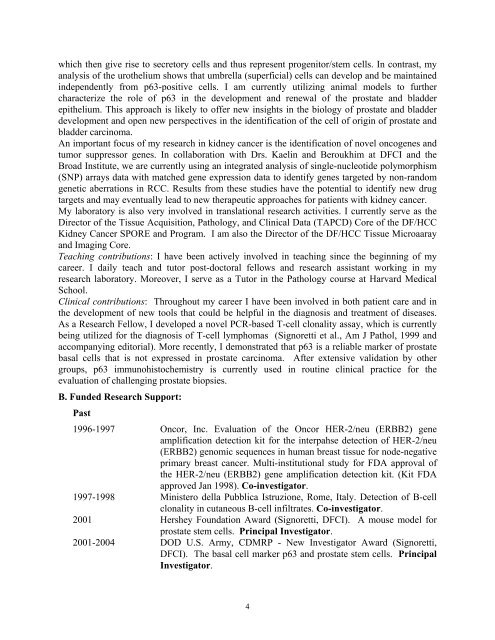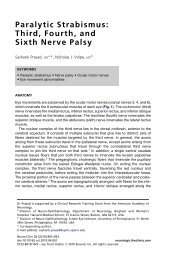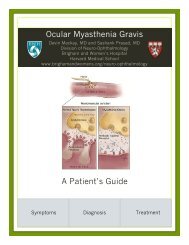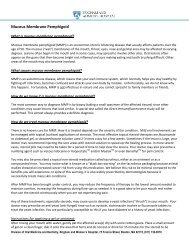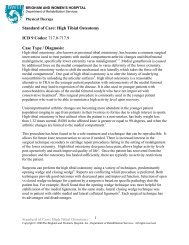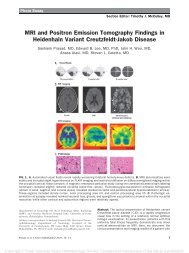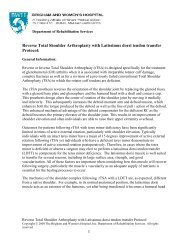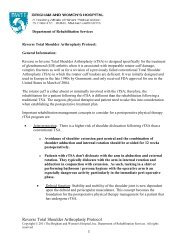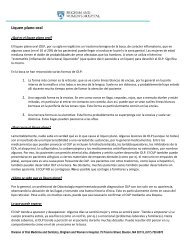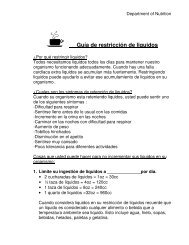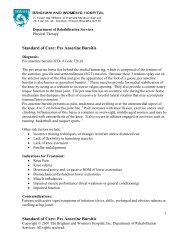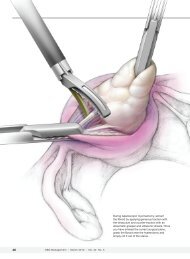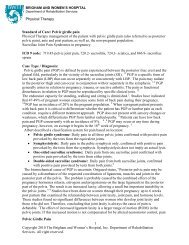CURRICULUM VITAE Part I General Information DATE PREPARED ...
CURRICULUM VITAE Part I General Information DATE PREPARED ...
CURRICULUM VITAE Part I General Information DATE PREPARED ...
You also want an ePaper? Increase the reach of your titles
YUMPU automatically turns print PDFs into web optimized ePapers that Google loves.
which then give rise to secretory cells and thus represent progenitor/stem cells. In contrast, my<br />
analysis of the urothelium shows that umbrella (superficial) cells can develop and be maintained<br />
independently from p63-positive cells. I am currently utilizing animal models to further<br />
characterize the role of p63 in the development and renewal of the prostate and bladder<br />
epithelium. This approach is likely to offer new insights in the biology of prostate and bladder<br />
development and open new perspectives in the identification of the cell of origin of prostate and<br />
bladder carcinoma.<br />
An important focus of my research in kidney cancer is the identification of novel oncogenes and<br />
tumor suppressor genes. In collaboration with Drs. Kaelin and Beroukhim at DFCI and the<br />
Broad Institute, we are currently using an integrated analysis of single-nucleotide polymorphism<br />
(SNP) arrays data with matched gene expression data to identify genes targeted by non-random<br />
genetic aberrations in RCC. Results from these studies have the potential to identify new drug<br />
targets and may eventually lead to new therapeutic approaches for patients with kidney cancer.<br />
My laboratory is also very involved in translational research activities. I currently serve as the<br />
Director of the Tissue Acquisition, Pathology, and Clinical Data (TAPCD) Core of the DF/HCC<br />
Kidney Cancer SPORE and Program. I am also the Director of the DF/HCC Tissue Microaaray<br />
and Imaging Core.<br />
Teaching contributions: I have been actively involved in teaching since the beginning of my<br />
career. I daily teach and tutor post-doctoral fellows and research assistant working in my<br />
research laboratory. Moreover, I serve as a Tutor in the Pathology course at Harvard Medical<br />
School.<br />
Clinical contributions: Throughout my career I have been involved in both patient care and in<br />
the development of new tools that could be helpful in the diagnosis and treatment of diseases.<br />
As a Research Fellow, I developed a novel PCR-based T-cell clonality assay, which is currently<br />
being utilized for the diagnosis of T-cell lymphomas (Signoretti et al., Am J Pathol, 1999 and<br />
accompanying editorial). More recently, I demonstrated that p63 is a reliable marker of prostate<br />
basal cells that is not expressed in prostate carcinoma. After extensive validation by other<br />
groups, p63 immunohistochemistry is currently used in routine clinical practice for the<br />
evaluation of challenging prostate biopsies.<br />
B. Funded Research Support:<br />
Past<br />
1996-1997 Oncor, Inc. Evaluation of the Oncor HER-2/neu (ERBB2) gene<br />
amplification detection kit for the interpahse detection of HER-2/neu<br />
(ERBB2) genomic sequences in human breast tissue for node-negative<br />
primary breast cancer. Multi-institutional study for FDA approval of<br />
the HER-2/neu (ERBB2) gene amplification detection kit. (Kit FDA<br />
approved Jan 1998). Co-investigator.<br />
1997-1998 Ministero della Pubblica Istruzione, Rome, Italy. Detection of B-cell<br />
clonality in cutaneous B-cell infiltrates. Co-investigator.<br />
2001 Hershey Foundation Award (Signoretti, DFCI). A mouse model for<br />
prostate stem cells. Principal Investigator.<br />
2001-2004 DOD U.S. Army, CDMRP - New Investigator Award (Signoretti,<br />
DFCI). The basal cell marker p63 and prostate stem cells. Principal<br />
Investigator.<br />
4


